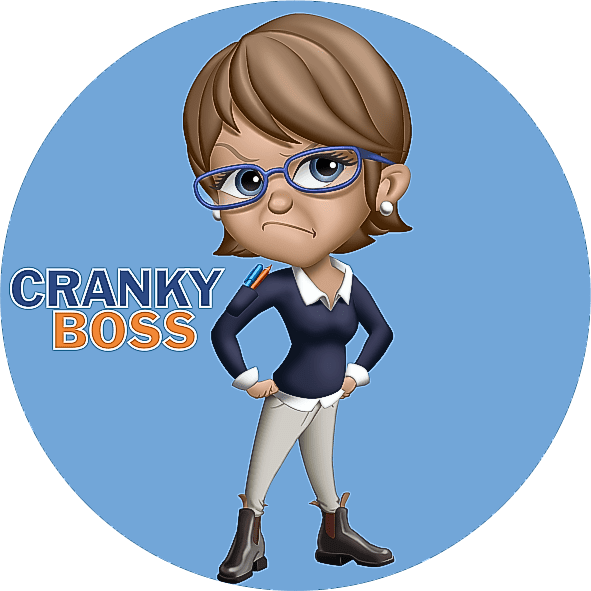Best Ways to Recession Proof Your Business
Recession-proof your business

First and foremost, let’s get a few basic definitions out of the way. It’s important to understand these three words in the simplest of terms:
- GDP
- Recession
- Inflation
What is GDP?
GDP stands for Gross Domestic Product and is used by all countries to measure the activities of governments, companies, and individuals. GDP is a country’s total economic output. It calculates economic goods and services produced in a country during a specific time.
The most significant component of GDP is Consumption, whilst other components include government spending, net exports, and business investments.
GDP figures are generally watched every quarter. When the economy grows, the GDP figure will increase from the previous quarter.
When an economy is growing, people are doing more work, and their wealth is increasing. This means that people spend more, more jobs are created, workers are likely to get pay rises, and more tax is paid.
If the GDP figures are falling, the economy is shrinking, and the reverse is occurring. People are spending less, workers are losing their jobs, and less tax is being paid. Typically, consumer demand is down, and employment is on the decline. This is generally not good news for businesses and workers alike.
What is a recession?
A recession is two quarters in a row of a falling GDP.
In simple terms, the economy is struggling, people are losing their jobs, businesses or companies are not selling enough, and the overall economic output is on a prolonged and widespread decline.
Although recessions may last a few months, the recovery can take years.
What causes a recession?
Some causes of recession can be:
High-interest rates – cause reduced borrowing and investment. High-interest rates can also cause mortgage payments to increase and, in turn, make consumers spend less.
Fall in house prices – has an enormous impact on consumer wealth and spending.
Rising oil & gas prices – as currently seen due to the Russia/Ukraine conflict – can create higher production costs which in turn get pushed onto the consumer.
Drop in consumer confidence – consumers will naturally spend less if they earn less but will also spend less if they perceive an economic downturn on the horizon.
High Inflation– the high cost of living coupled with no wage increases can contribute to people spending less.
What is inflation?
Inflation is when consumers pay more for the same goods and services than they did a year ago. Inflation can occur when there are not enough products to keep up with demand (supply/demand issue).
It can also happen when the costs of producing products increase which in turn causes businesses to increase their prices. Another reason inflation occurs is when workers demand higher wages to keep up with rising costs. This can also lead to companies raising their prices to meet the demand for wage increases.
Now that we have run through the basic terminology let’s look at what small businesses should do in a recession.
So how do business owners prepare for a recession?
There are a few simple steps to prepare your business in recession. I also refer to these as strategies for business survival during a recession.
1. Cut your Expenses & Operate within your budget.
When the GFC hit in 2009, it was one of the first things I did to soften the blow of the economic impact this had on our business. I re-assessed all our expenses. I quite literally ran a fine-tooth comb over all our expenses and cut out any unnecessary ones completely. I looked at renegotiating new supplier contracts with better deals or asking my existing provider to price match. Going back to the bare minimum and keeping your overhead & G&A expenses as low as possible is the best thing you can do for your business in recession or during a financial crisis like the GFC . This means your business in recession should only pay for something needed to keep your business operating and nothing else.
2. Pay off your debts
Look at any debts or suppliers you may owe money to. Try and get this down to a bare minimum. Most importantly, look at your credit card debts and pay these off first and foremost, as the interest rates are generally higher.
3. Collect your Money!
Get your invoicing sorted and collect any money that is owed to you. A business in recession must protect it’s revenue and start to minimise it’s risk with your debtors.
4. Get an Overdraft or financing.
A bank overdraft was generally the cheapest way of getting financing when I looked at my options during the GFC. I didn’t need to get it, but I understood it would be easier to get it while my profits and books were in good order rather than wait for a sudden downturn. It’s funny how banks work; they tend to give money to people who don’t need it rather than those who do! Lenders tend to tighten the reigns during economic downturns, so you must stay a step ahead and be proactive. Getting financing before you need it is like carrying an umbrella in your car during monsoon season. It will save you the drenching.
5. Don’t make any unnecessary investments.
I generally paused any investments the business needed until the eye of the storm had passed. These included new equipment or machinery, new staff, and any advertising that did not bring in a direct sale.
A business in recession should minimise the amount of inventory at hand.
I wanted to retain funds within the business and ride out the wave for a few months until there were signs of buyer confidence coming back from the crisis. Learning to think outside the box or otherwise known as lateral thinking is critical at a time like this. Creating more sales channels was essential to stimulate more cash flow into the business. Equally important was to nurture the leads we had captured through our sales funnel. We did this through email marketing campaigns and social media posts.
Investing “time” into existing customer relationships was of more importance during this time than ever before. Retaining customers is always cheaper than acquiring new ones!
This was equally important in relationships between our suppliers, service providers and staff.
6. Build a Cash Reserve
If you haven’t already done so, start creating a nest of cash in the bank which you can put aside and forget about. I do this irrespective of any looming recession. It is just good business practice, and if you haven’t been able to achieve this so far, this is the perfect time to do it. Creating a hidden bank account will assist you greatly with your cash flow forecast and could be critical in seeing you through these events. The idea is that you keep putting aside as much money as possible and allow your bank account to accumulate funds for a business in recession and emergencies only. Keep it out of sight and out of mind.
Businesses that do well in a recession.
Any business that is an essential part of people’s lives will do well in a recession. These can be grocery stores (because people need to eat), health care, childcare, baby products such as diapers and baby formula, the pet industry and accounting or financial advisors.
What businesses will survive the recession?
Any business with a strong foundation, proper risk management and meticulous business planning should survive a financial crisis. I say “should” because there will be times, as we have recently seen with Covid, that unless there has been a miraculous upturn in business, may not be able to survive or ride out the wave of destruction. As difficult as it may be, it is crucial to recognise the signs early and wrap up your business as quickly as possible in such extreme events.
The above are some simple tips on how to create a recession-proof business.
Do not panic during a financial crisis; you must be proactive and alert. Lead your business and team to the other side as effectively and efficiently as possible. More importantly, remember that this, too, will end. It always does. A business in recession CAN survive with the right approach.
May the force be with you.

